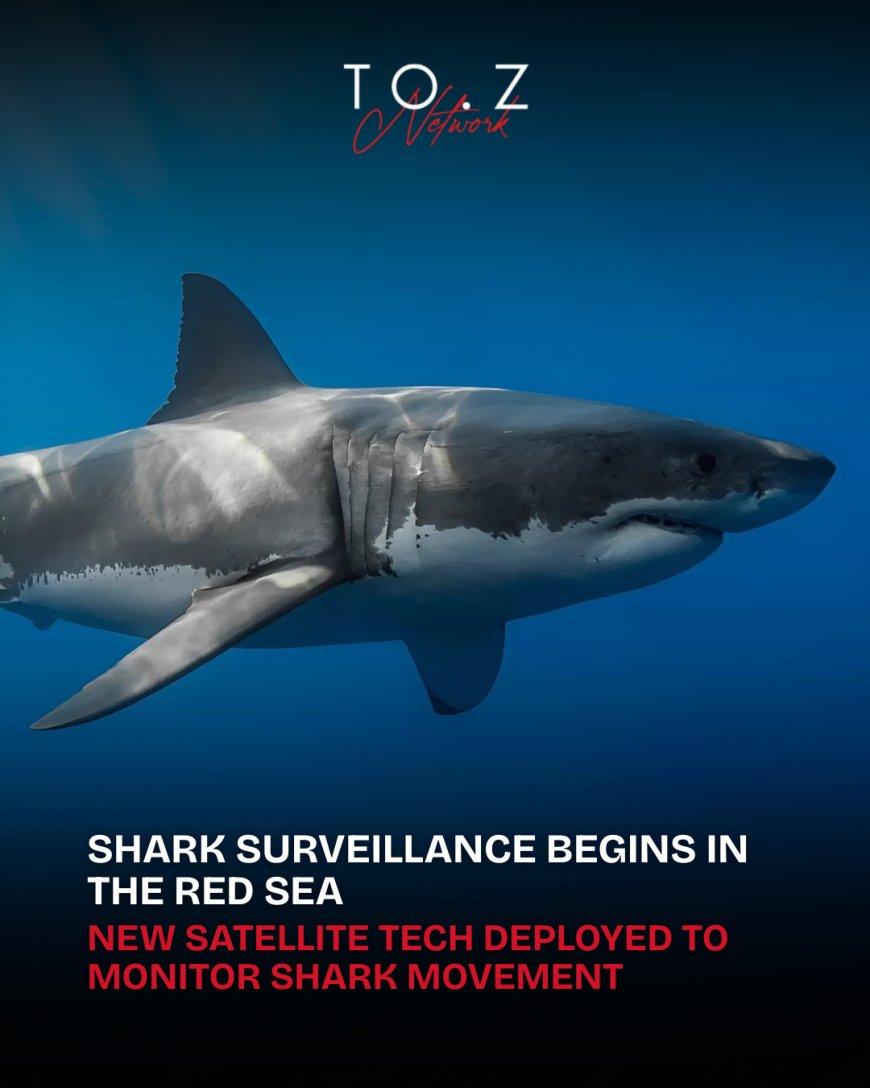Red Sea Safety Boost: Egypt Launches Shark Tracking Program
Egypt has successfully launched a shark tracking program in the Red Sea, installing nine satellite devices on Oceanic Whitetip Tiger Sharks to monitor their movement and collect genetic data. The mission, led by the Environment Ministry with support from HEPCA and international experts, enhances marine safety, supports tourism, and contributes to ecological research.

A Milestone in Marine Conservation
Egyptian Minister of Environment, Dr. Yasmine Fouad, has announced the successful completion of the first mission to implement a new shark tracking initiative in the Red Sea. The project marks a major step forward in enhancing marine safety, environmental research, and biodiversity protection in one of the world’s most vibrant coral reef ecosystems.
Multinational Collaboration for Local Impact
The program was carried out by a specialized Egyptian team including experts from the Ministry of Environment, the Hurghada Environmental Protection & Conservation Association (HEPCA), and the Chamber of Diving and Marine Activities. The effort also involved the Hurghada Green Project and a French expert in shark satellite tagging and monitoring, showcasing a strong international collaboration.
Tagging Tiger Sharks Across Key Red Sea Locations
During the mission, the team successfully installed nine satellite tracking devices on Oceanic Whitetip Tiger Sharks in the waters of Brother Islands, Elphinstone (Marsa Alam), and Shehr Reef (Safaga). The tracking aims to monitor shark movement and behavior over a one-year period, collecting precise data to guide future conservation and tourism safety strategies.
Scientific Study: Samples and Identification
As part of the scientific expedition, 14 shark samples were taken to determine the genetic characteristics of the local shark population. The team also documented dorsal fin photos of the Oceanic Whitetip Tiger Sharks to build an identification database. These unique fin markings will help distinguish individual sharks and track their patterns over time.
Regional Leadership in Marine Safety
Minister Fouad highlighted that Egypt is one of the first Red Sea countries to implement such a comprehensive shark monitoring program, which includes tiger sharks, mako sharks, and oceanic whitetip sharks. She emphasized that sharks hold high economic and ecological value, particularly in supporting sustainable diving tourism and maintaining marine ecosystem balance.
Technology-Driven Conservation
The mission followed best environmental practices in tagging, testing, and safely releasing the sharks back into their habitat. The satellite devices were calibrated for accurate data transmission, which will be collected throughout the upcoming year to provide deep insights into shark migration and behavior.
Looking Ahead
This project is part of a broader vision to integrate cutting-edge technology with ecological sustainability, ensuring that Egypt remains a leader in marine conservation and eco-tourism in the region.









